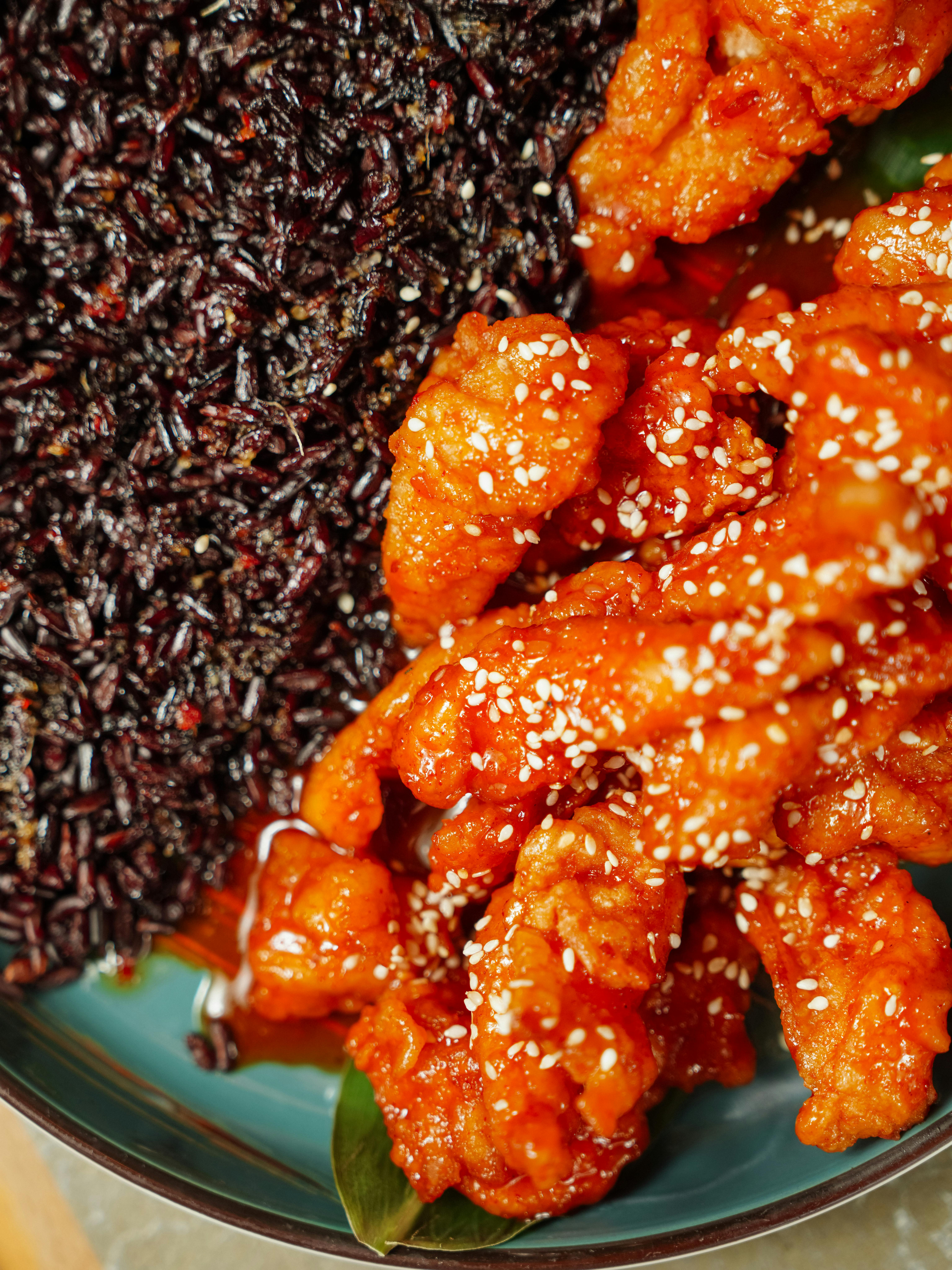
Apply Now


Effective Ways to Get Rid of Swollen Taste Buds in 2025
Understanding Swollen Taste Buds
Swollen taste buds are a common and often uncomfortable condition that many people encounter. They can result from various factors, including irritation from spicy foods, allergic reactions, or infections. You may notice symptoms such as discomfort, pain, or a change in taste sensation, which can significantly impact your eating habits and overall enjoyment of food. Understanding the causes of swollen taste buds is essential to effectively address the issue. Common causes of swollen taste buds often include dietary choices. Foods high in acidity or spiciness can irritate the papillae, leading to inflammation. Conditions such as oral thrush or mouth ulcers also contribute to swollen taste buds, affecting how we experience flavors. Additionally, stress and dehydration can play a critical role in taste bud health. Symptoms such as soreness or swelling can detract from your quality of life, making it important to explore effective treatments and prevention strategies. With these basics established, we’ll explore specific remedies that can help in healing swollen taste buds and preventing recurrence.Home Remedies for Swollen Taste Buds
When dealing with sore taste buds, several effective home remedies can provide relief. One of the most recommended treatments is a warm saltwater rinse. This method is simple and helps soothe the inflammation while promoting healing. Mix one teaspoon of salt into a cup of warm water and swish it around your mouth for about 30 seconds, then spit it out. This rinse not only helps reduce swelling but also improves overall oral hygiene. Another home remedy worth considering is the use of cool liquids. Drinking cool, soothing beverages could alleviate discomfort associated with swollen taste buds while keeping your mouth hydrated. Herbal teas, non-citrus juices, or plain water can be beneficial. The goal is to avoid any acidic or spicy drinks during the healing phase. Additionally, anti-inflammatory foods can help manage discomfort. Foods such as yogurt, bananas, and oatmeal are gentle on the mouth and can provide nutrition without the pain of irritants. Maintaining a diet low in spicy or acidic foods can assist in preventing further irritation as your taste buds recover.Some Effective Over-the-Counter Treatments
For those seeking quick relief from swollen taste buds, over-the-counter (OTC) treatments should also be considered. Oral gels formulated for mouth sores can help numb the area and reduce pain. Look for gels that contain benzocaine or similar active ingredients to soothe sore spots effectively. Moreover, antihistamines can be beneficial if allergies trigger your swollen taste buds. These medications help relieve swelling caused by allergic reactions, thereby calming the inflammation. Always consult with a healthcare professional to determine the appropriate treatment for your specific symptoms and health conditions. Finally, keeping up with good oral hygiene practices will assist in managing swollen taste buds. Regular brushing, flossing, and using a soothing mouthwash are paramount in preventing bacterial buildup that may worsen your condition. Such practices, combined with proper treatments, contribute significantly to maintaining healthy taste buds.Identifying the Causes of Swollen Taste Buds
Understanding the underlying causes of swollen taste buds is crucial in effectively managing and treating the condition. Various irritants can lead to inflammation and swelling of the taste buds. Common causes include certain foods, oral hygiene practices, and physical trauma.Dietary Influences and Allergens
Diet plays a significant role in the health of your taste buds. Consuming foods that are spicy or highly acidic can lead to irritation of the papillae, causing swelling and discomfort. Common culprits include citrus fruits, hot peppers, and vinegar-based foods. In some cases, food allergies can provoke an exaggerated immune response, resulting in swollen taste buds. Identifying and avoiding allergens is essential to prevent further swelling. Keeping a detailed food diary may help pinpoint any relationship between certain foods and your symptoms. We can’t ignore the effects of dehydration either. Insufficient water intake can lead to a dry mouth, increasing sensitivity and swelling of taste buds. Ensure you stay hydrated to maintain moisture levels in the oral cavity for optimal taste bud function.Impact of Oral Health Practices
Poor oral hygiene can be a breeding ground for bacteria, leading to infections such as oral thrush, which can cause swelling of the taste buds. Regular dental care, including routine check-ups and cleanings, can significantly reduce risks associated with oral health issues. Neglecting dental care could also manifest as mouth sores or ulcers. These painful conditions not only affect taste sensation but may also contribute to inflammation of surrounding tissues. Remember, maintaining good oral hygiene is a crucial preventive measure for keeping your taste buds healthy. Health conditions such as diabetes or nutritional deficiencies may further exacerbate taste bud swelling. A well-balanced diet rich in vitamins and minerals supports overall oral health; therefore, it is essential to monitor any dietary deficits impacting your taste perception.Treating Swollen Taste Buds
When faced with swollen taste buds, various treatment options are available. From home remedies to pharmacological treatments, understanding all possible avenues for relief can ensure you find the right solution for your condition.Pharmacological Approaches
Pharmacological treatments for swollen taste buds are diverse, depending on the underlying cause. If allergens are involved, antihistamines may help alleviate symptoms. In cases where bacterial infection is suspected, a healthcare provider may prescribe antibiotics to address the issue. For chronic or severe cases, corticosteroids might be recommended to reduce inflammation. They are effective in treating swelling and pain but should be used under professional supervision to avoid side effects associated with extended use. Additionally, mouth washes with anti-inflammatory properties can provide soothing relief while addressing inflammation. Look for products containing ingredients like chlorhexidine, which are effective in promoting oral health and reducing swelling. Always follow proper guidelines for usage to achieve optimal results.Integrating Natural Remedies with Pharmacological Treatments
Integrating natural remedies with pharmacological approaches can provide compounded benefits for individuals struggling with swollen taste buds. While OTC and prescription treatments may address symptoms, natural remedies can support healing and promote long-term oral health. Choosing an anti-inflammatory diet loaded with antioxidants, like leafy greens, berries, and omega-3-rich fish, can further assist in managing inflammation. Foods rich in vitamins A, C, and E have positive effects on mucosal healing and immunity, making them essential for maintaining healthy taste buds. It's also crucial to stay well-hydrated and limit the consumption of irritants. Incorporating lifestyle modifications, such as reducing stress and avoiding irritants like smoking or alcohol, can contribute to maintaining good oral health and preventing swollen taste buds.Preventing Swollen Taste Buds
Prevention is always better than cure, especially when it comes to maintaining your oral health. There are several effective strategies you can implement to keep your taste buds healthy and avoid future swelling.Implementing Good Oral Hygiene Practices
Establishing a consistent oral care routine is vital in preventing swollen taste buds. Brush your teeth at least twice a day, use a soft-bristle toothbrush, and floss daily. Regularly using a fluoride mouthwash can also help reduce bacteria and plaque build-up in the mouth. Consumer-friendly oral tools, such as tongue scrapers, are beneficial for keeping taste buds clean. Removing food particles and bacteria from your tongue’s surface can prevent irritation and inflammation, ensuring optimal taste function. Avoiding certain foods that trigger irritation, such as spicy or acidic items, is another best practice. If you notice recurring issues associated with particular foods, such as hot peppers or citric drinks, it may be best to limit their intake or eliminate them altogether.Maintaining a Balanced Diet
A well-rounded diet rich in whole foods has a direct impact on the health of your taste buds. Focus on nutrient-dense foods, including lean proteins, whole grains, fruits, and vegetables. Limiting processed foods and sugars can support oral health and overall well-being. Incorporating anti-inflammatory foods, such as turmeric, ginger, and fatty fish, can enhance overall immune function and promote healing. Foods rich in vitamins and minerals also play a critical role in maintaining healthy taste perception, supporting both oral and general health. Staying well-hydrated is equally important; aim to drink plenty of water throughout the day. This helps maintain moisture in the oral cavity, reducing discomfort and promoting overall taste bud health.Q&A: Common Questions About Swollen Taste Buds
What are the symptoms of swollen taste buds?
Symptoms of swollen taste buds may include discomfort, pain, a swollen appearance on the tongue, and changes in taste perception. In some cases, individuals may experience difficulty eating or drinking certain items, especially spicy or acidic foods.When should I see a doctor about my taste buds?
If swollen taste buds persist for more than a few days, worsen, or are accompanied by other symptoms such as fever or difficulty swallowing, it is advised to consult a healthcare professional. They can evaluate underlying causes and recommend appropriate treatment.Are there any specific foods I should avoid for swollen taste buds?
Generally, it’s advisable to avoid spicy, acidic, or hard foods that can further irritate inflamed taste buds. Common irritants include citrus fruits, tomato-based products, and hot spices. Opting for soothing foods and beverages is preferable during recovery.Can stress affect my taste buds?
Yes, stress can significantly impact taste perception. It may lead to a heightened sensitivity to taste, making individuals more aware of discomfort caused by swollen taste buds. Implementing stress-reduction techniques can be beneficial for your overall oral health.What home remedies can help with swollen taste buds?
Home remedies for swollen taste buds include warm saltwater rinses, cool liquids for soothing effects, and consuming anti-inflammatory foods. These approaches focus on reducing inflammation and promoting healing naturally and effectively.
